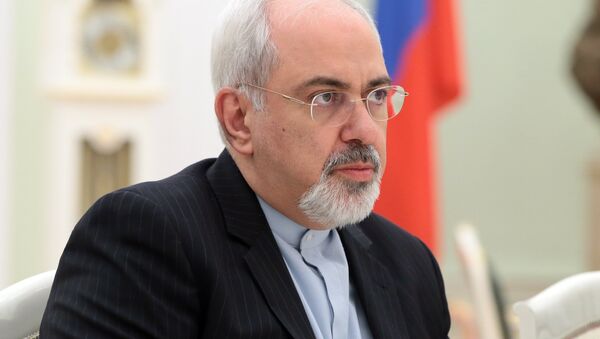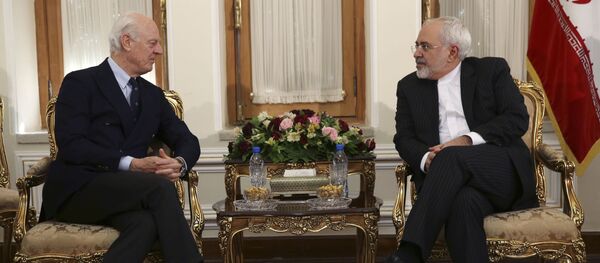"Following the signing of the interim nuclear deal in November 2013, Saudi Arabia began devoting its resources to defeating the deal, driven by fear that its contrived Iranophobia was crumbling. Today, some in Riyadh not only continue to impede normalization but are determined to drag the entire region into confrontation," Zarif wrote in an op-ed article in The New York Times newspaper Sunday.
According to the minister, Riyadh is afraid that after the international community stops considering the Iranian nuclear program a threat it will direct its attention to Saudi Arabia sponsoring terrorism.
"The Saudi strategy to derail the nuclear agreement and perpetuate — and even exacerbate — tension in the region has three components: pressuring the West; promoting regional instability through waging war in Yemen and sponsoring extremism; and directly provoking Iran," Zarif said.
On July 14, Iran and the P5+1 group of mediators — Russia, the United States, China, France and the United Kingdom plus Germany — reached an agreement on ensuring a peaceful nature of Tehran’s nuclear program in exchange for sanctions relief.



